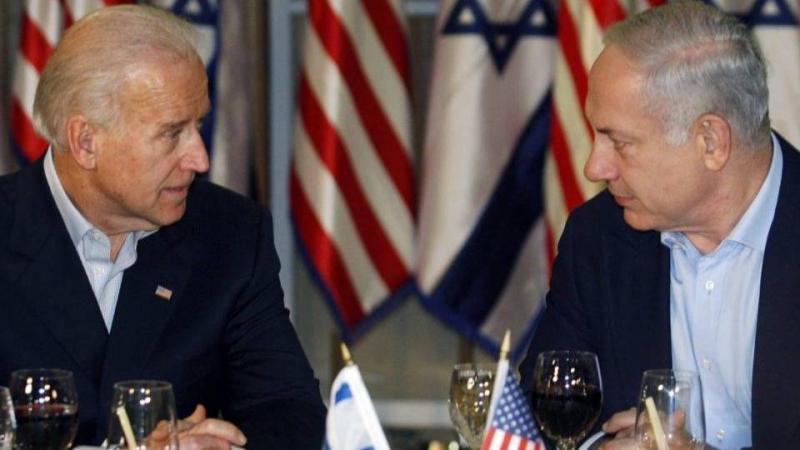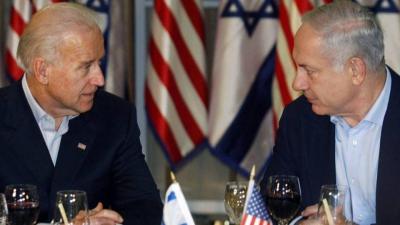U.S. President Joe Biden and Israeli Prime Minister Benjamin Netanyahu pledged today, Wednesday, to work together towards an agreement to establish diplomatic relations between Israel and Saudi Arabia. The meeting between Biden and Netanyahu marked their first direct talks since Netanyahu returned to office in December. They expressed a desire to ease tensions in their relationship, but Biden also clarified that he was determined to discuss their differences.
These differences include Biden's objections to a controversial judicial reform plan proposed by Netanyahu's far-right ruling coalition, along with Biden's concerns about the repercussions of Israel's hardline approach toward the Palestinians. As the talks began, Biden hoped, while sitting next to Netanyahu in a New York hotel conference room, that "we can resolve some issues today."
A statement released by the White House after the meeting noted that Biden "reiterated his concerns about the implications of any radical changes to the Israeli democratic system in the absence of a maximum consensus." The statement also called for "immediate actions to improve the security and economic situation, to maintain the feasibility of a two-state solution, and to promote a fair and lasting peace between Israelis and Palestinians."
Rather than meeting at the White House, as Netanyahu preferred, the talks were arranged on the margins of the United Nations General Assembly in New York. Biden extended an invitation for Netanyahu to visit Washington before the end of the year.
Biden reaffirmed his commitment to preventing Iran from acquiring nuclear weapons and also reiterated his support for a two-state solution to the Israeli-Palestinian conflict. However, the main agenda item for the talks was the U.S.-led effort to establish diplomatic relations between Israel and Saudi Arabia, a step within a broader and more complex negotiation framework that includes U.S. security guarantees and assistance in the field of civilian nuclear energy that Riyadh seeks, in addition to Israel making concessions to the Palestinians.
For his part, Netanyahu stated, "I believe that during your presidency, we can reach a historic peace between Israel and Saudi Arabia... Such peace will give a huge boost first to ending the Arab-Israeli conflict and achieving reconciliation between the Islamic world and the Jewish state, as well as a boost towards achieving real peace between Israel and the Palestinians." He emphasized that they can work together to make history. Biden responded by reiterating the word "together," indicating his commitment to the normalization efforts that he said were not even on the table just a few years ago.




